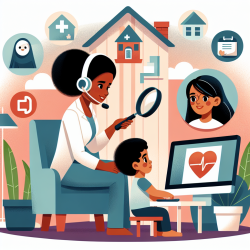Introduction
Advance Care Planning (ACP) is a crucial component of healthcare, enabling individuals to express their future health care preferences. However, its acceptance and implementation can vary significantly across different cultural groups. The South Asian community, the largest visible minority group in Canada, presents unique challenges and opportunities in ACP engagement. This blog explores insights from the research article "Understanding Advance Care Planning within the South Asian Community" to help practitioners enhance their skills and approaches when working with this diverse group.
Understanding the Barriers
The research highlights several barriers that South Asian community members face regarding ACP:
- Cultural Norms: The concept of ACP is often foreign, with many associating it with end-of-life issues like organ donation and estate planning. Family plays a central role in decision-making, often overshadowing individual autonomy.
- Religious Beliefs: Fatalistic attitudes and strong religious convictions can hinder open discussions about future healthcare preferences.
- Immigration Challenges: The pressures of adapting to a new country often take precedence over planning for future healthcare needs.
Strategies for Engagement
Despite these barriers, the research provides valuable strategies for engaging the South Asian community in ACP:
- Community Involvement: Utilize community centers and religious institutions as platforms for disseminating information and initiating discussions.
- Family-Centric Approach: Encourage discussions that include family members, respecting the cultural norm of collective decision-making.
- Healthcare Provider Initiatives: Train family physicians to initiate ACP discussions, as they are trusted figures in the community.
- Language and Cultural Sensitivity: Translate materials into native languages and use culturally relevant narratives to explain ACP concepts.
Implementing Change
For practitioners looking to improve their skills in engaging with the South Asian community, it is essential to adopt a culturally sensitive approach. This involves:
- Building Trust: Establish relationships with community leaders and religious figures who can advocate for ACP.
- Education and Training: Attend workshops and training sessions focused on cultural competence and effective communication strategies.
- Research and Adaptation: Continuously research and adapt strategies based on feedback and evolving community needs.
Conclusion
Engaging the South Asian community in ACP requires a nuanced understanding of cultural, religious, and social dynamics. By implementing the strategies outlined in the research, practitioners can foster a more inclusive and effective approach to advance care planning. Embracing cultural sensitivity not only enhances patient care but also strengthens community trust and participation.
To read the original research paper, please follow this link: Understanding advance care planning within the South Asian community.










